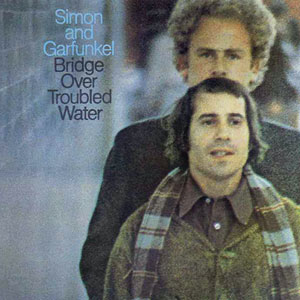- El Cóndor Pasa (song)
Song infobox
Name = El Cóndor Pasa
Caption =
Type =
Artist =
alt Artist =
Album =
Published = 1913
Released =
track_no =
Recorded =
Genre = Andean folk tunes
Length =
Writer =Daniel Alomía Robles
Composer =
Label =
Producer =
Tracks =
prev =
prev_no =
next =
next_no =
Misc = Single infobox
Name = El Condor Pasa (If I Could)

Artist =Simon and Garfunkel
from Album = Bridge Over Troubled Water
B-side = "Why Don't You Write Me "
Released = September, 1970
Format =7" single
Recorded = November 1968 and
November 1969
Genre =Folk rock
Length = 3:06
Label =Columbia Records
Producer =Paul Simon ,Art Garfunkel ,Roy Halee
Last single = "Cecilia" (1970)
This single = "El Condor Pasa (If I Could)" (1970)
Next single = "America" (1972)El Cóndor Pasa is a song from the
zarzuela "El Cóndor Pasa" by thePeru vian composerDaniel Alomía Robles written in 1913 and based on traditional Andean folk tunes.It is possibly the best-known Peruvian song worldwide due to a cover version by
Simon & Garfunkel in 1970 on their "Bridge Over Troubled Water" album, which is called El Condor Pasa (If I Could).Paul Simon used the instumental version of Los Incas as the basic-track (wihhout permission) and wrote entirely new, unrelated lyrics. Later that year,Perry Como released a cover of Simon's English version on his album "It's Impossible", whileJulie Felix took advantage of Simon and Garfunkel's decision not to release their version as a UK single, and had a UK Top 20 hit with it. [ [http://kokomo.ca/cd_review/cd_finder/el_condor_pasa_cd_finder.htm By Request: A Perry Como Discography] , accessedMay 8 ,2006 ] Simon & Garfunkel did release their version as a single in the U.S. and it reached # 18 on theBillboard Pop Singles chart in the fall of 1970.History of the Song
In 1913 Alomía Robles composed "El cóndor pasa" and the song was first performed publicly at the Teatro Mazzi in Lima. [http://www.acuarela.se/ElCondorPasa.htm La República. ""El cóndor pasa" patrimonio cultural de la nación" by Pedro Escribano. April 13, 2004.] ]
In the 1960's the musical group, "Los Incas" performed the song in Paris where it was heard by
Paul Simon ofSimon and Garfunkel . "Los Incas" told Simon, perhaps through ignorance, that the song was a 19th century musical composition by an anonymous composer. Simon became interested in the song and composed new lyrics for the melody. The song appeared on Simon and Garfunkel's 1970 album "Bridge over Troubled Waters".In 1970 Alomía Robles' son, Armando Robles Godoy, filed a copyright lawsuit against Simon and demonstrated that song had been composed by his father and that his father had copyrighted the song in the United States in 1933. Robles Godoy said that the lawsuit was almost friendly and that he bears no ill will towards Simon for what he considers a misunderstanding. [http://www.diariolaprimeraperu.com/online/semana/images/ediciones/pdf/6/6-4.pdf Diario La Primera. "El cine, los libros, la muerte - An interview with Armando Robles Godoy" by Juan Carlos Bondy. July 6, 2008.] ] "Fue un juicio casi amistoso, porque Paul Simon, aparte de ser un genio, era un tipo muy amante de la cultura. No se trató de un descuido de su parte," says Robles Godoy. "Sucede que él oyó la canción en París de un conjunto vernáculo. Le gustó, se acercó a preguntar y le dieron un informe equivocado. Le dijeron que era una melodía popular del siglo XVIII y no que era una composición de mi padre. Fue un juicio sin mayores problemas."
References
* "This article is based on a translation of an article from the Spanish Wikipedia."
Wikimedia Foundation. 2010.
